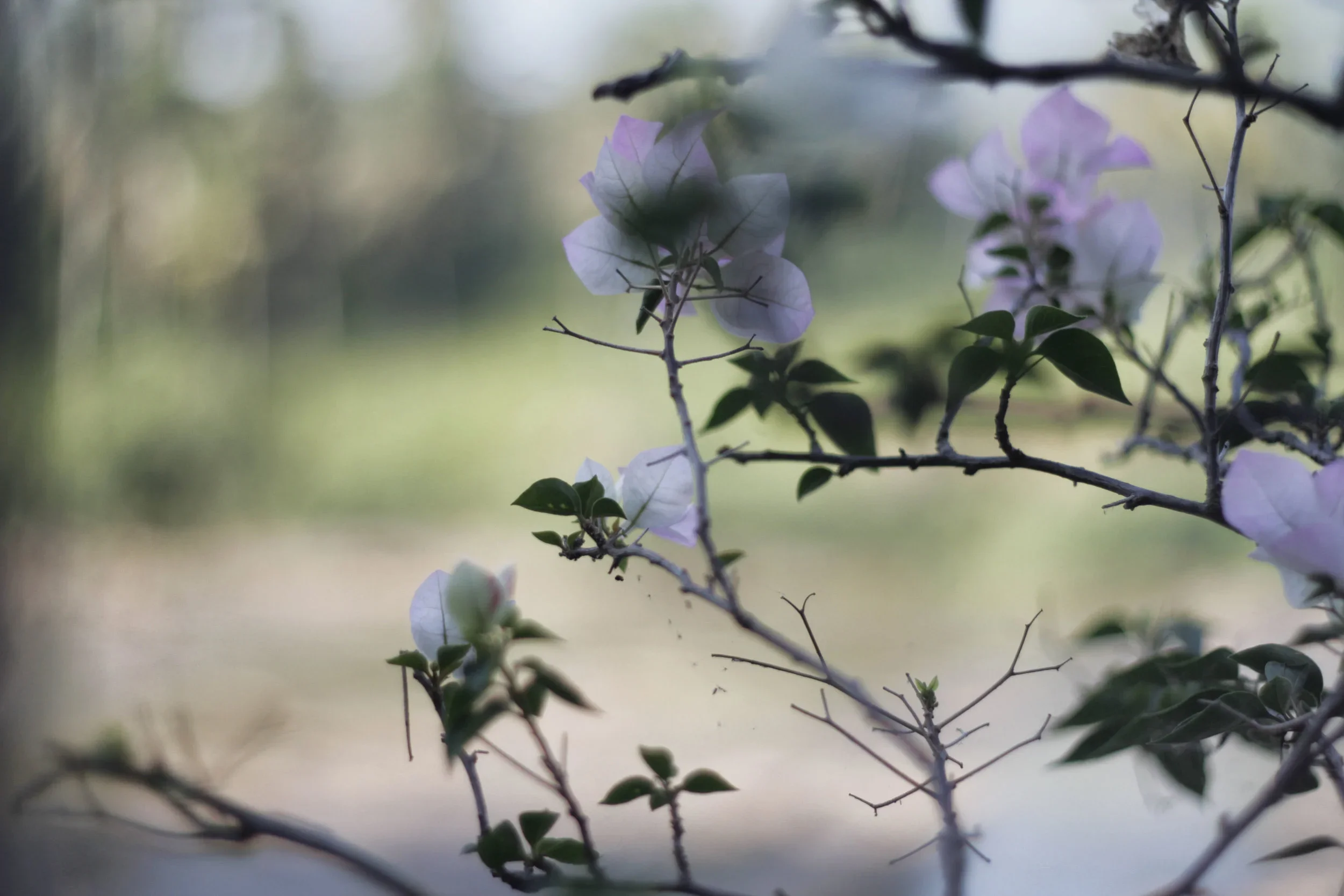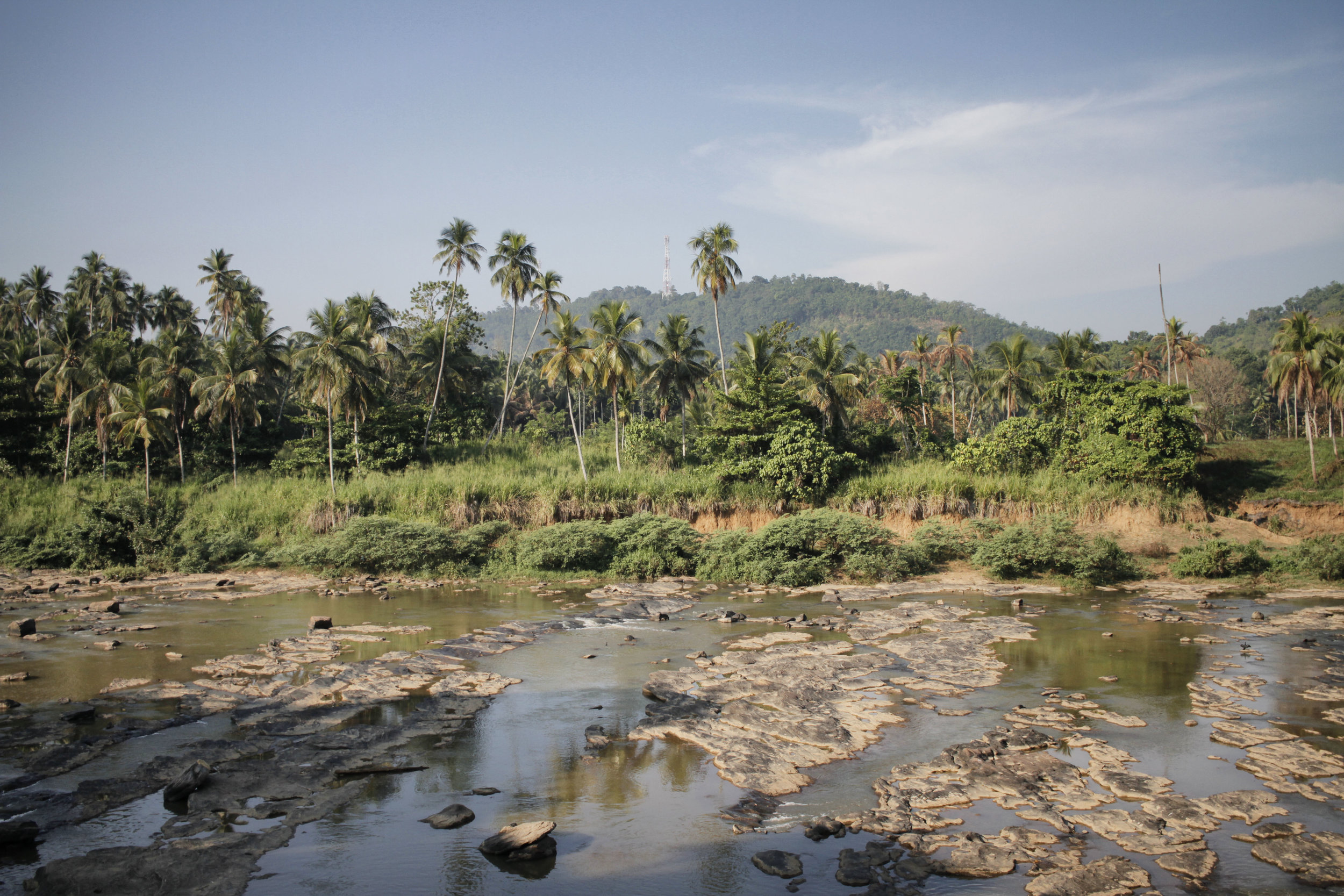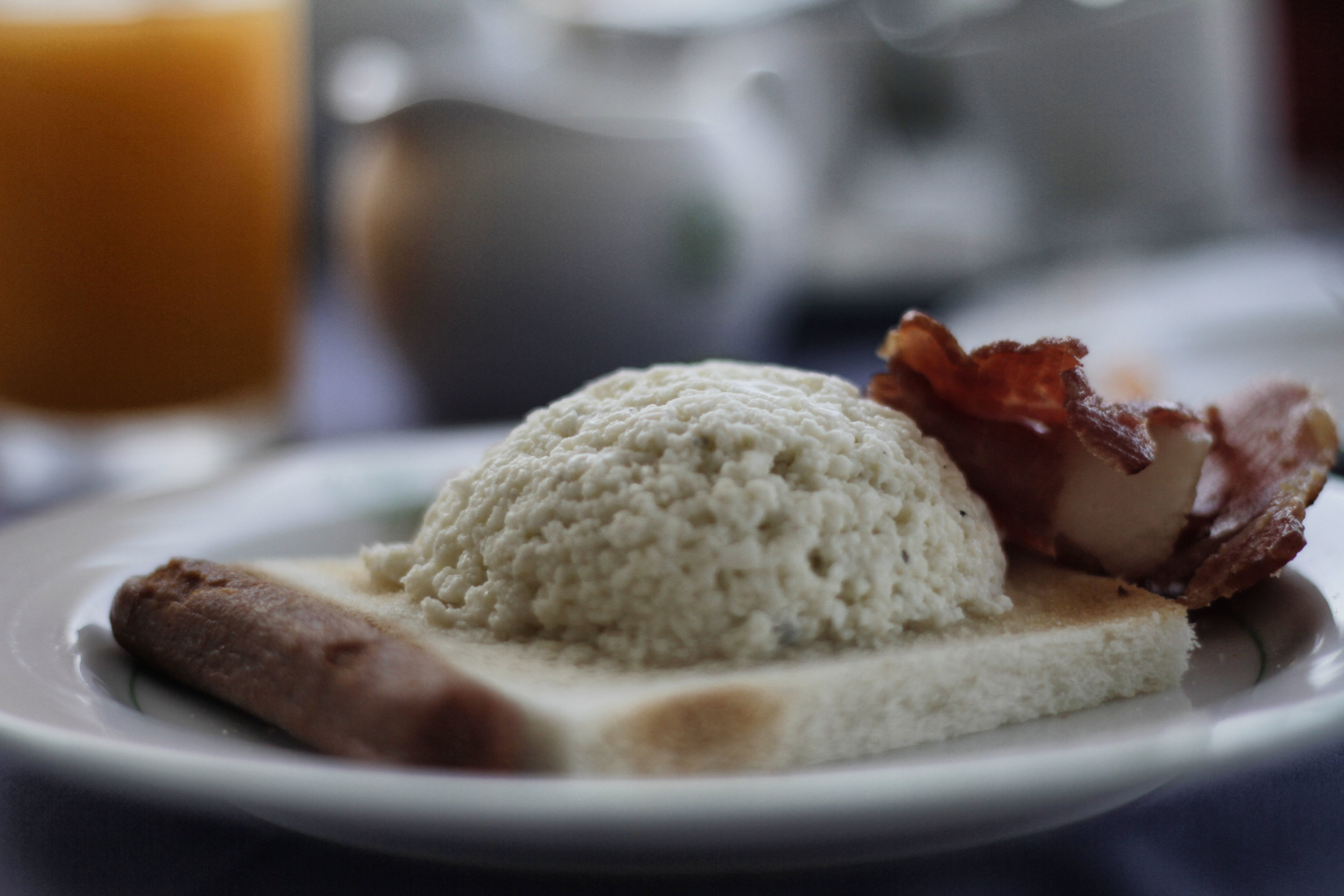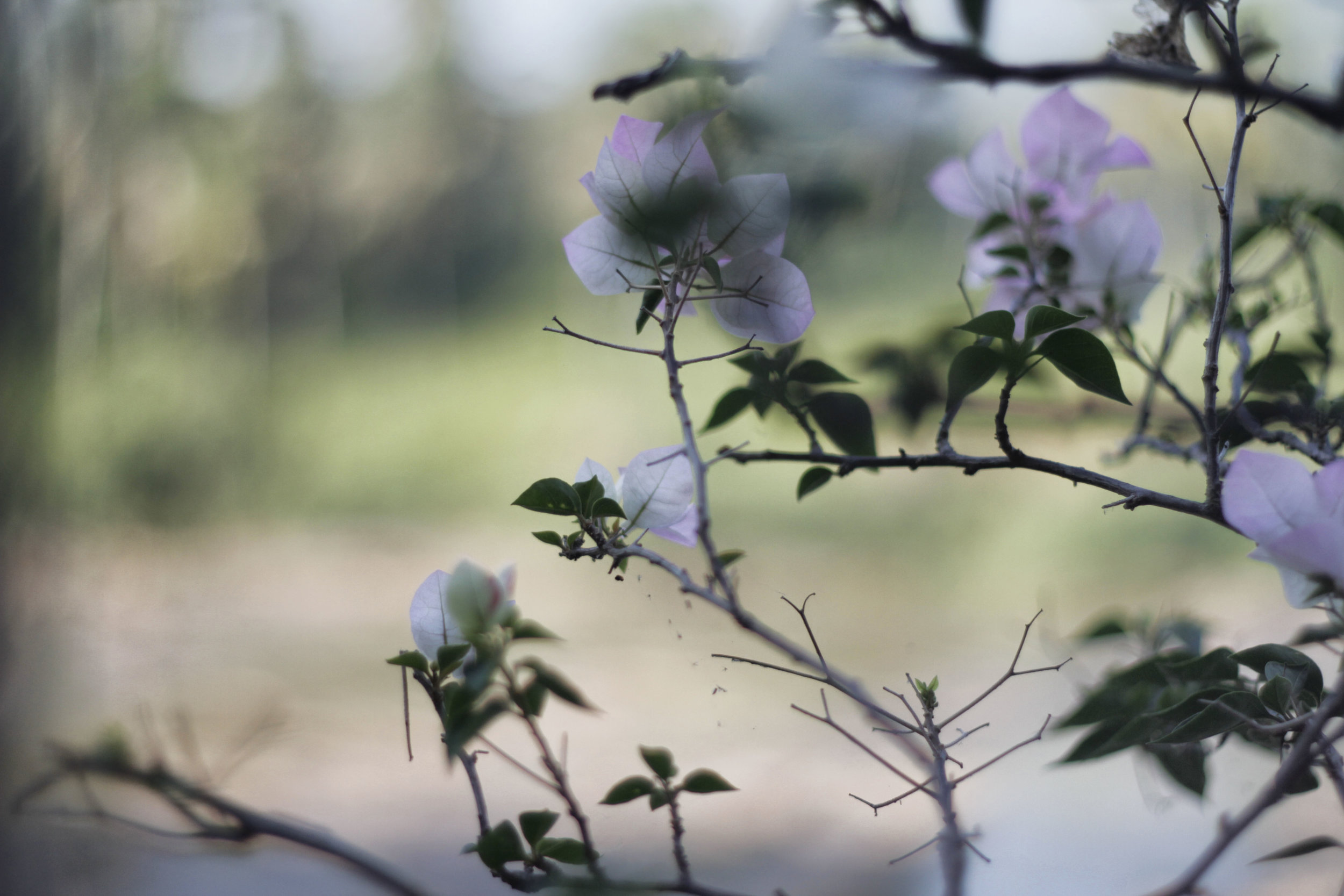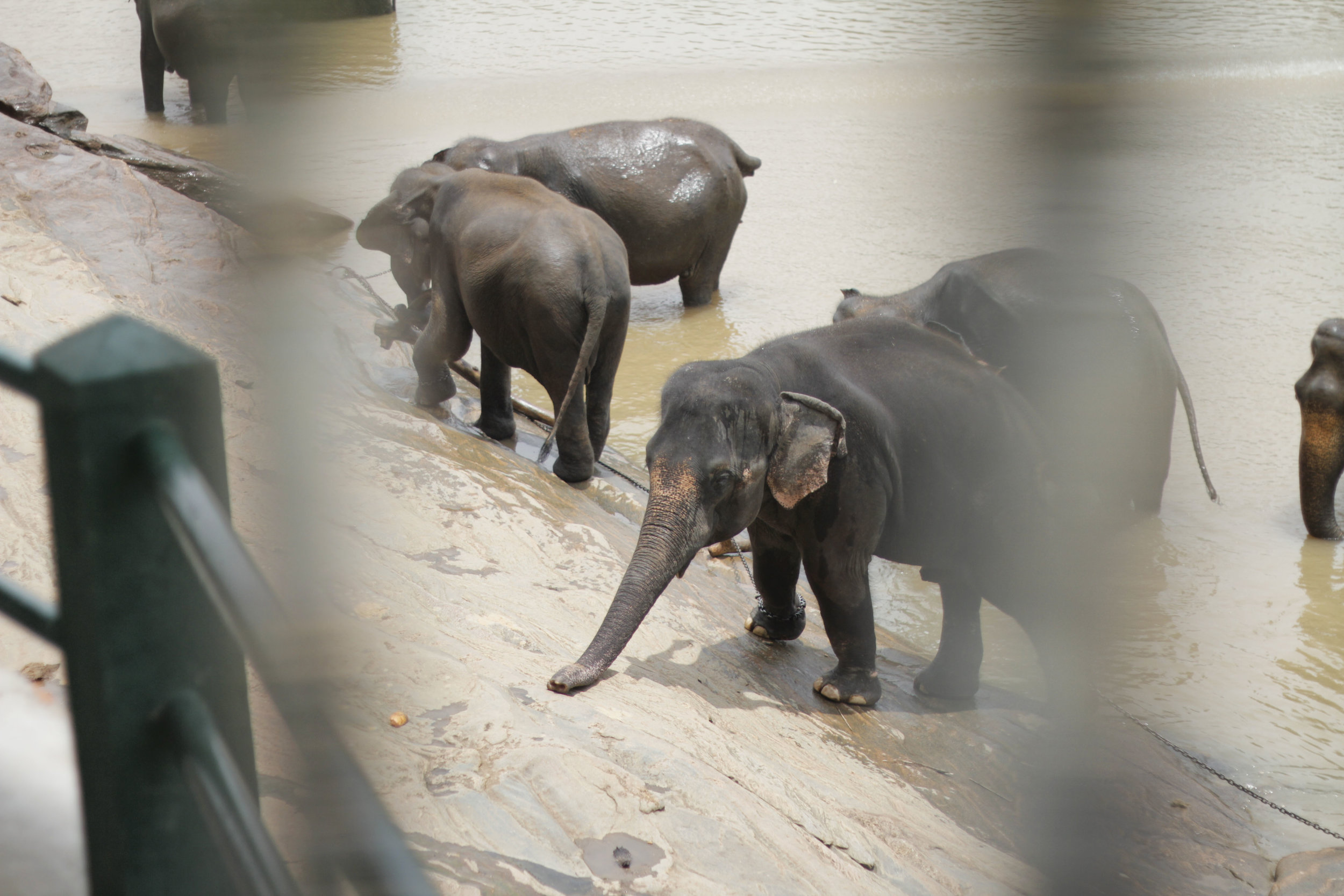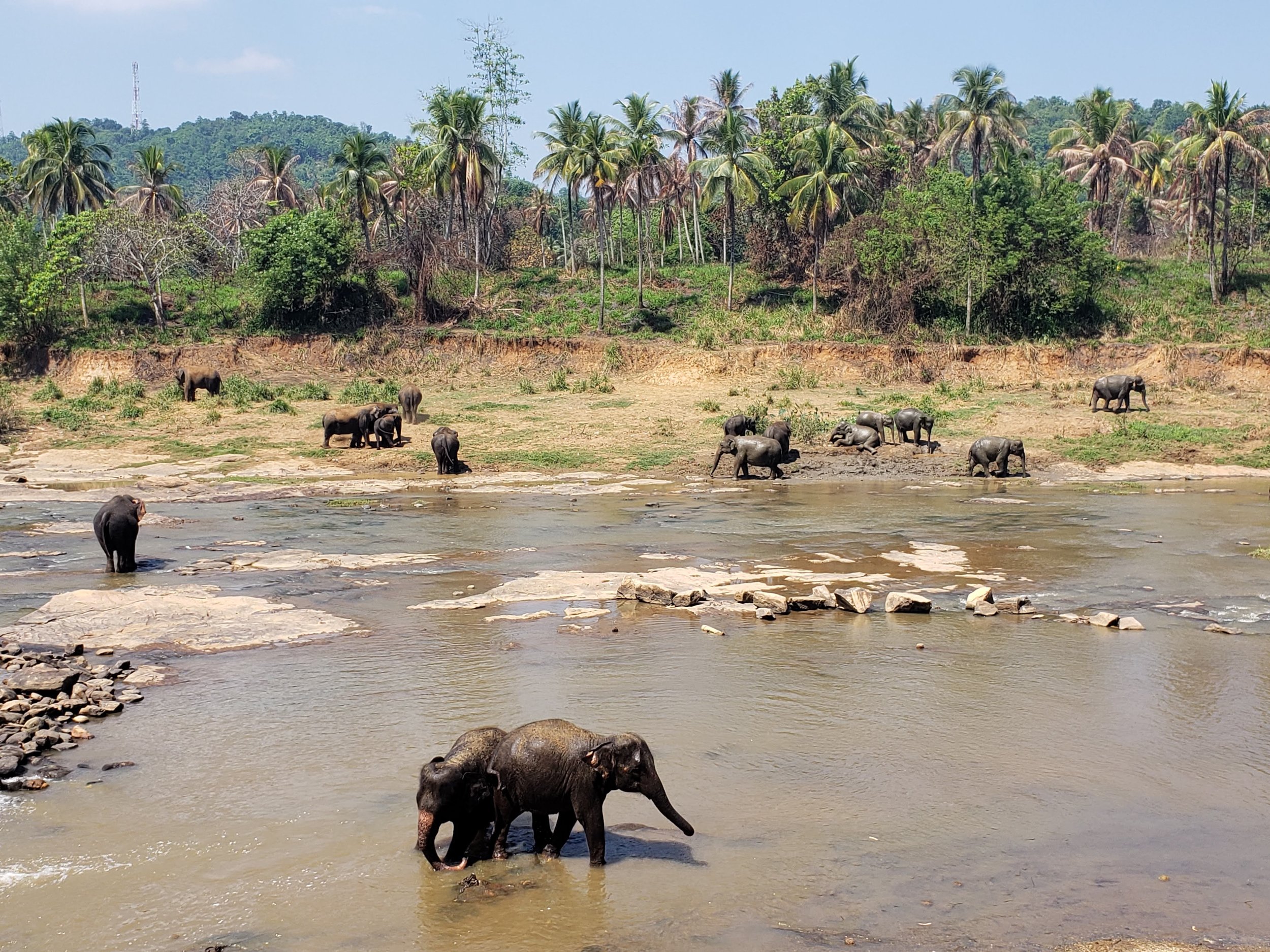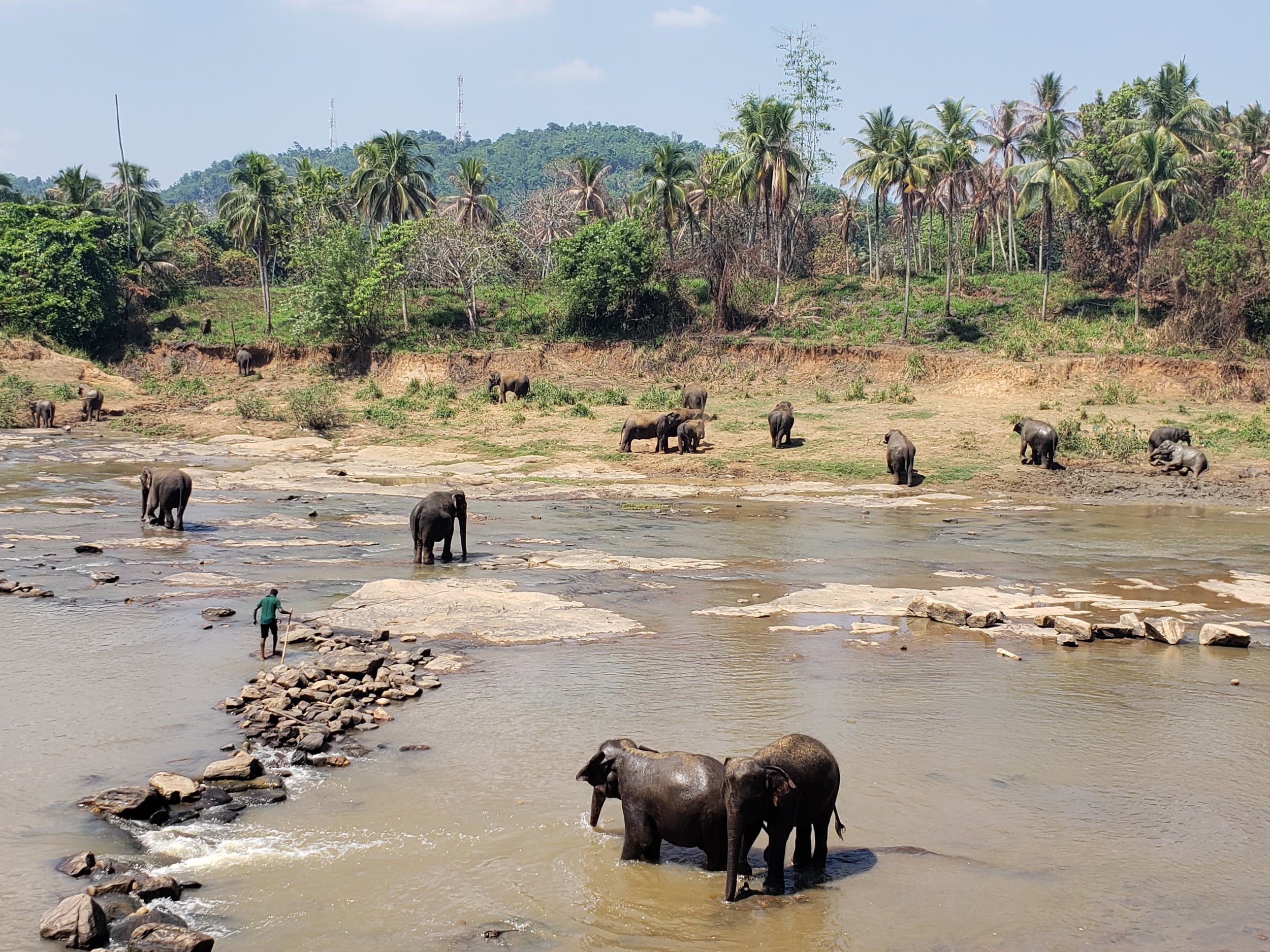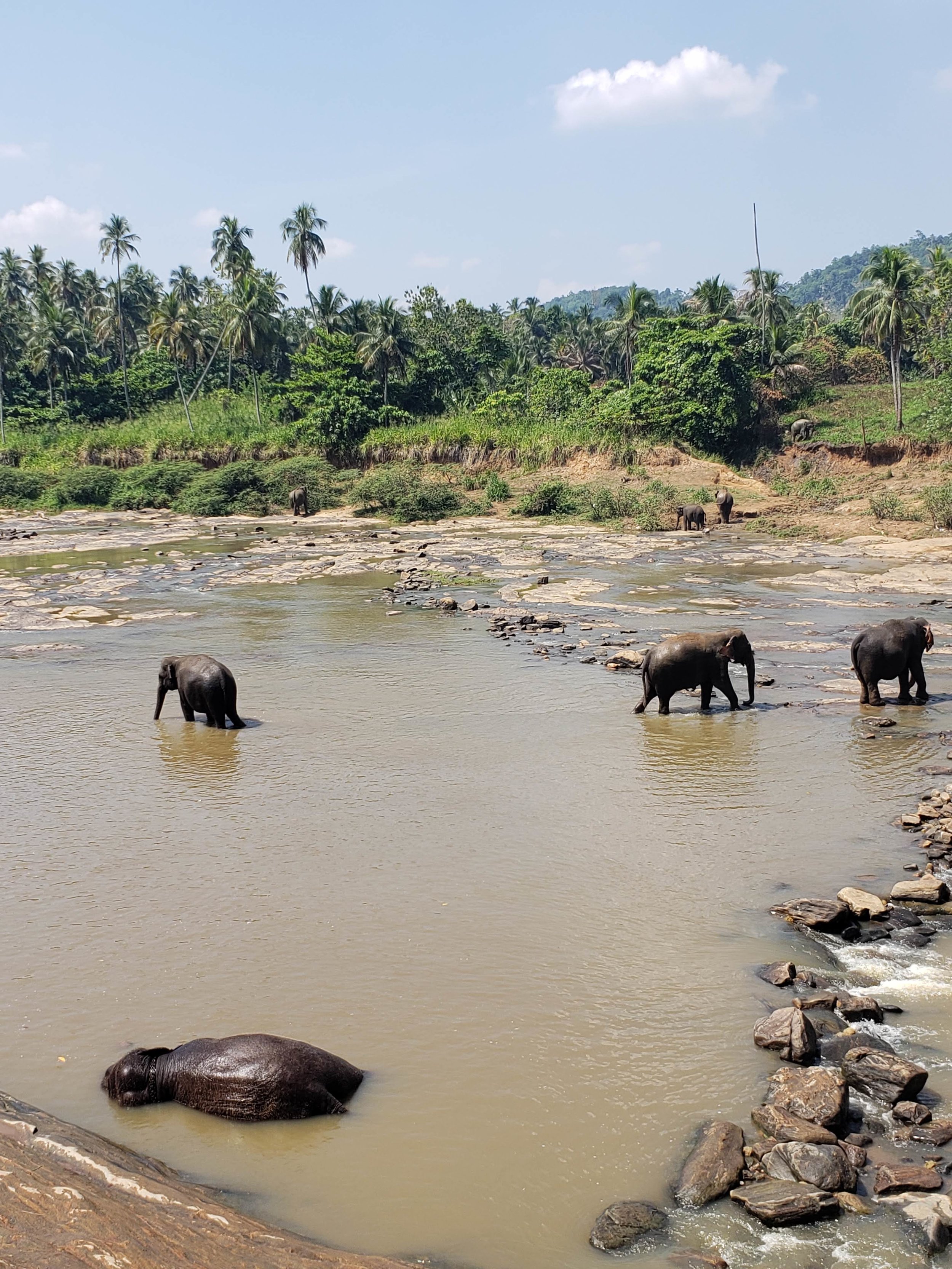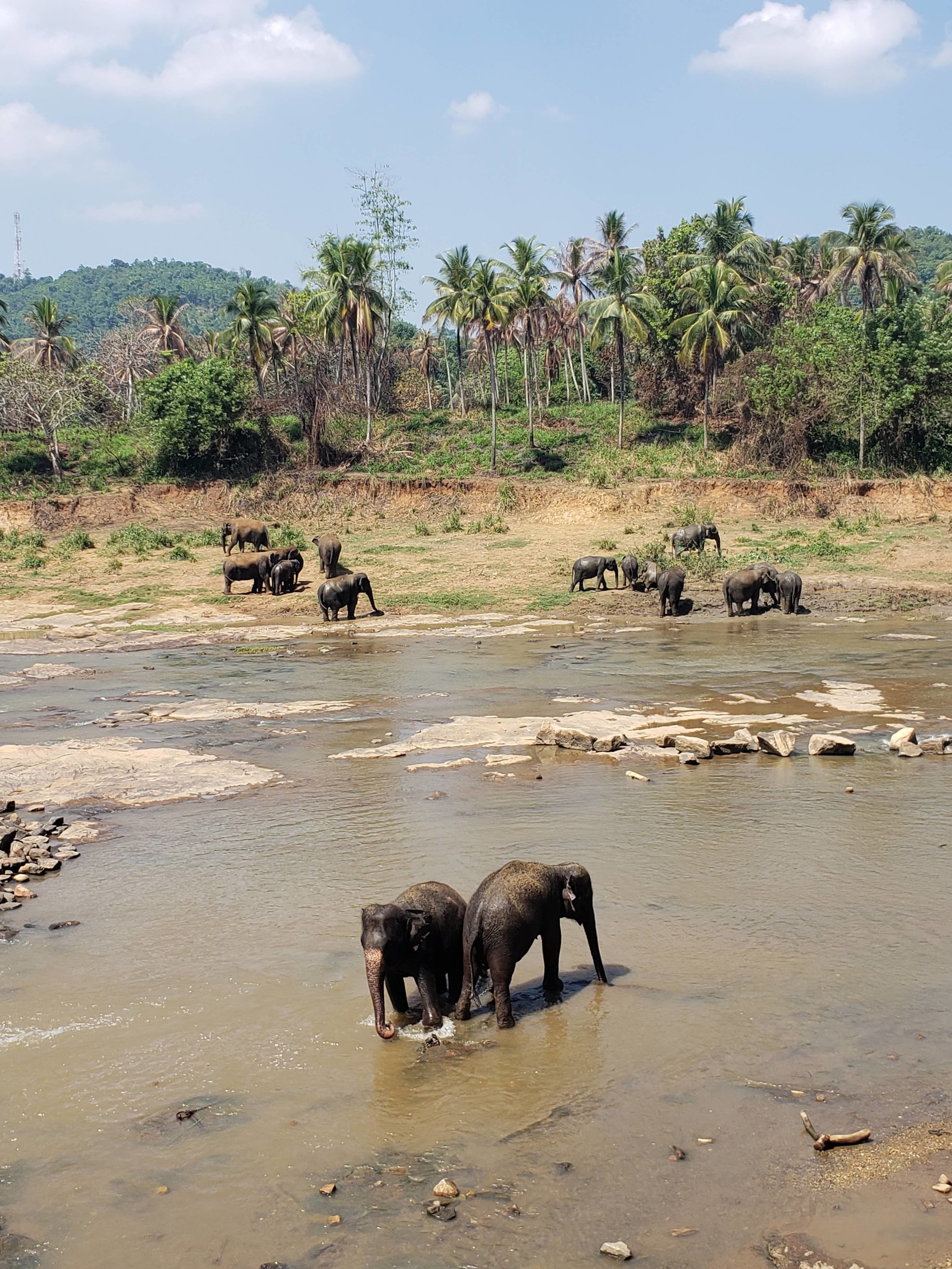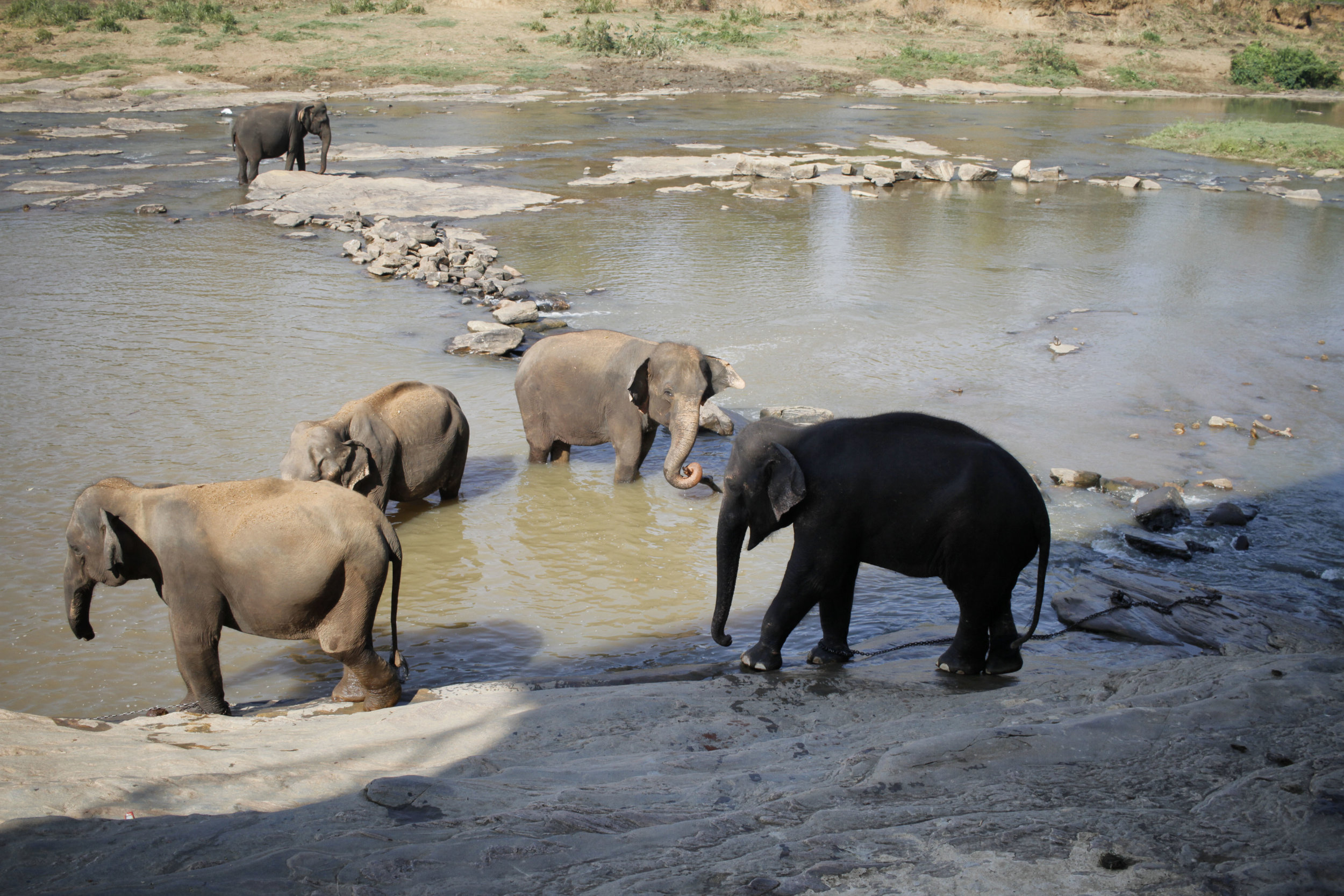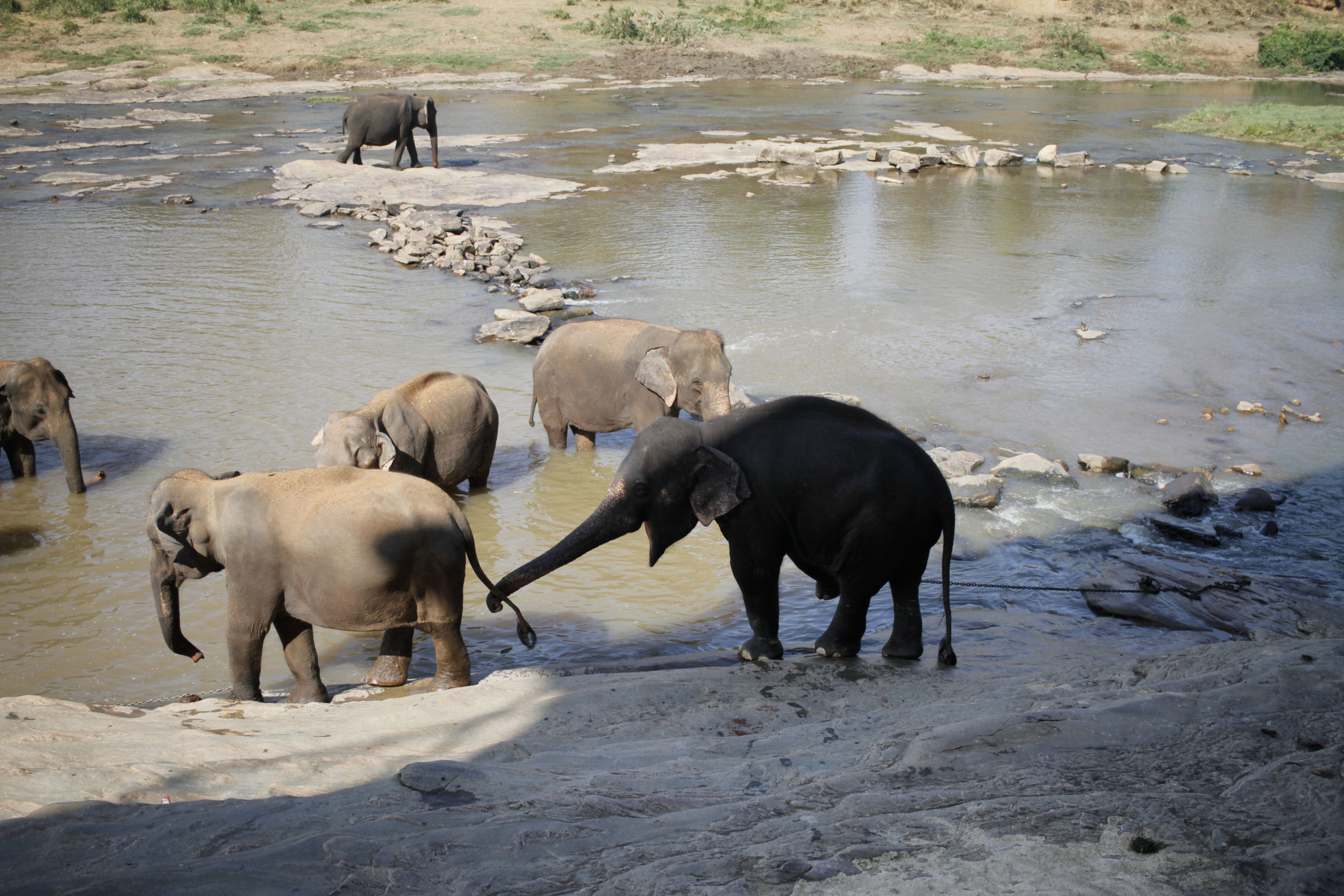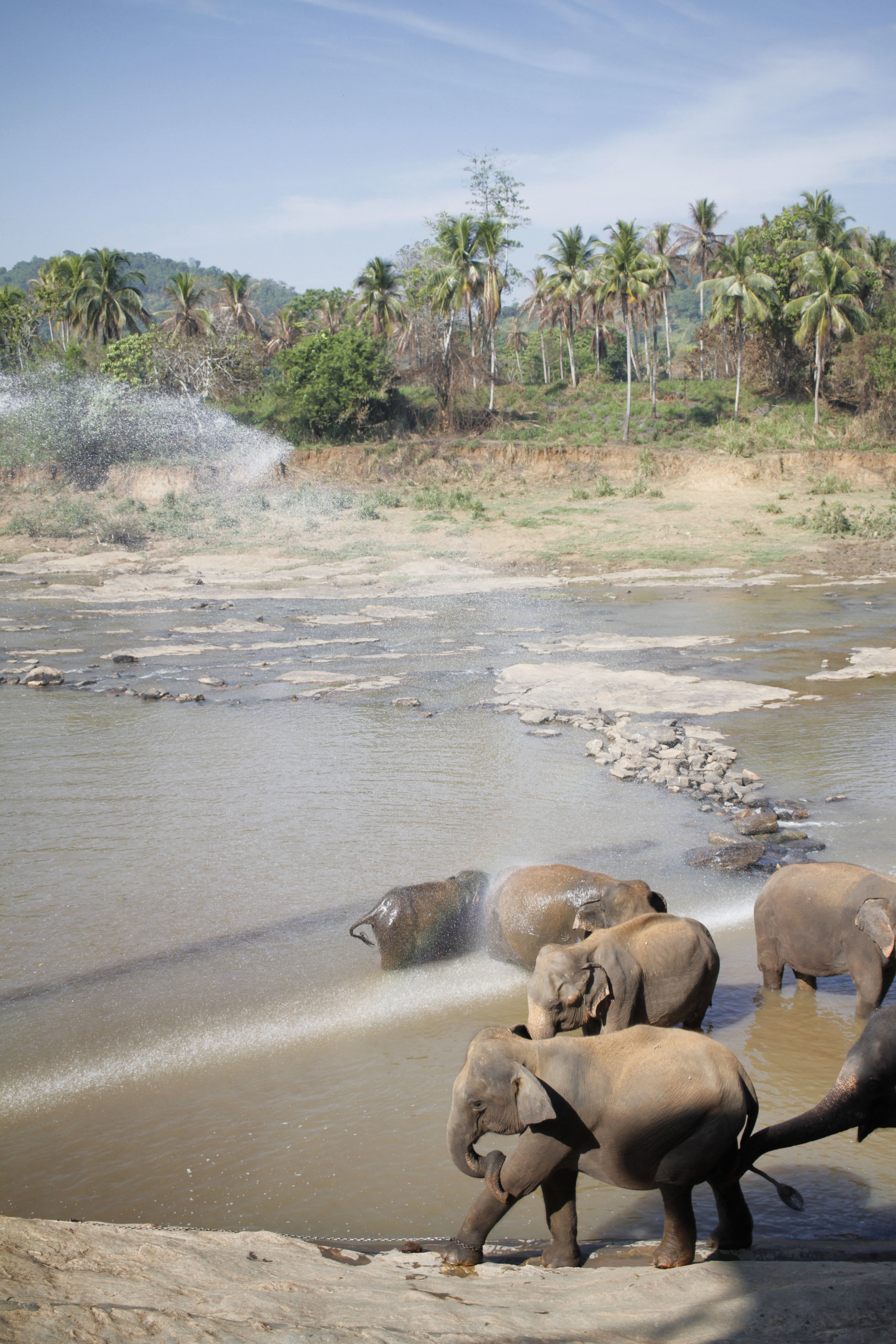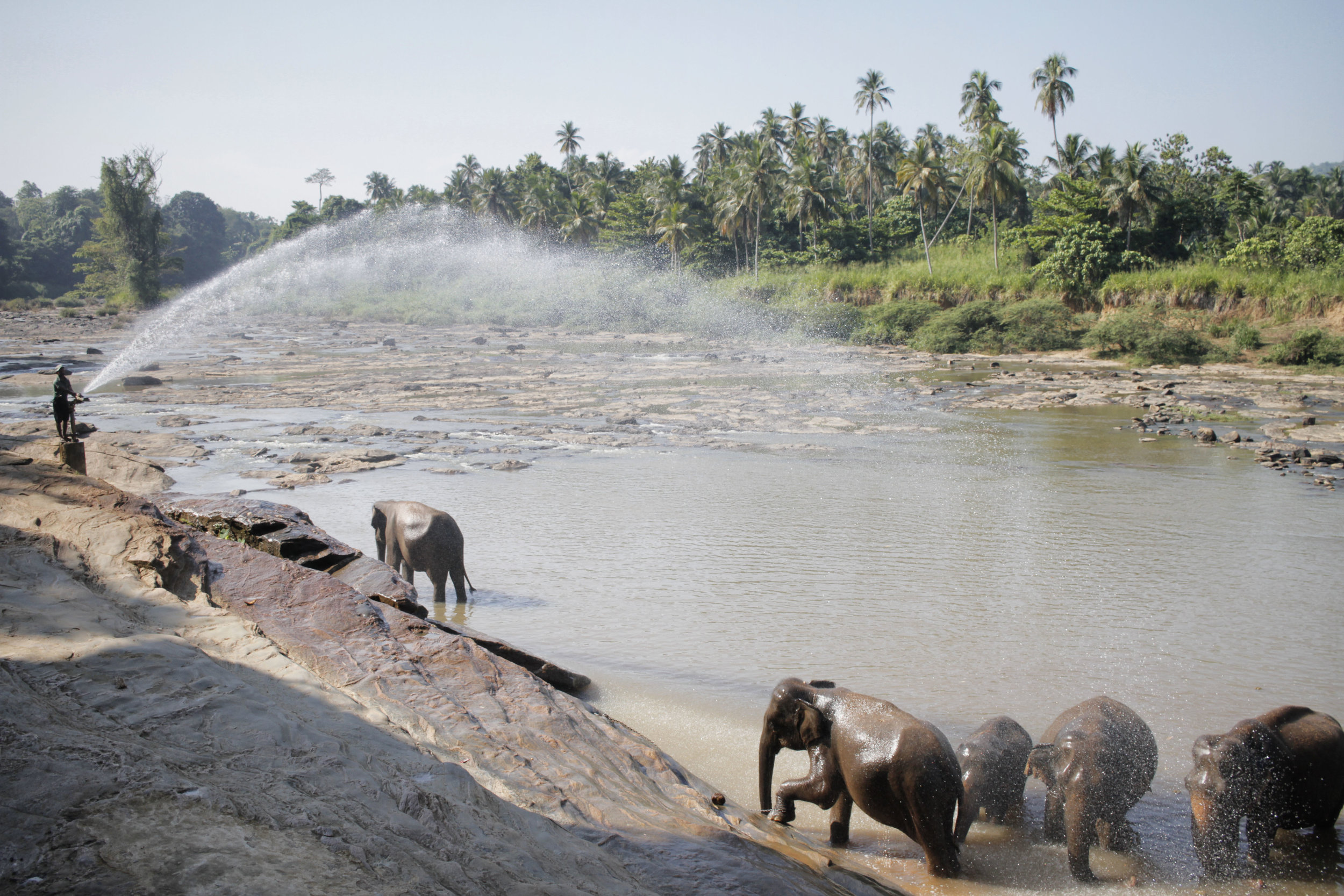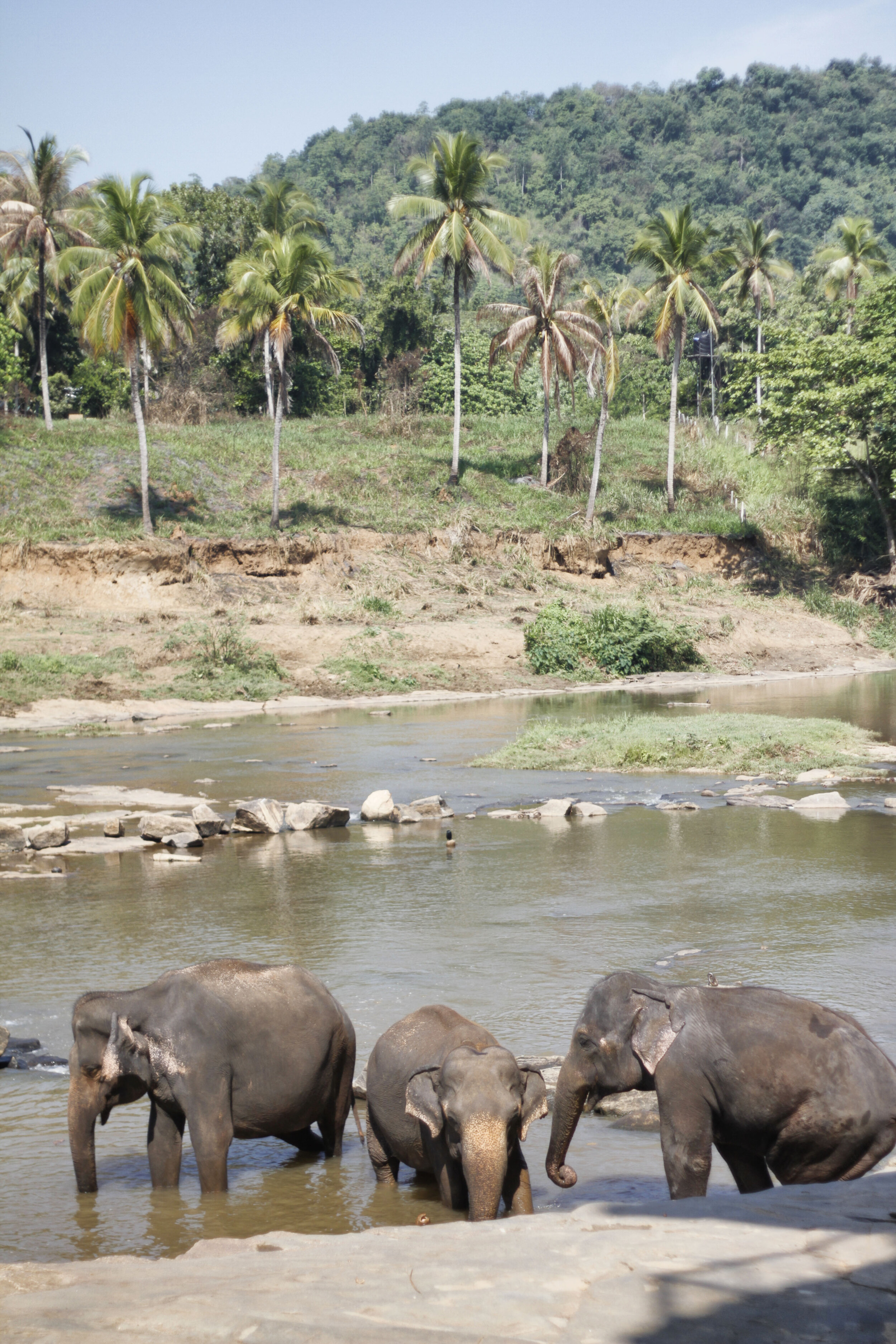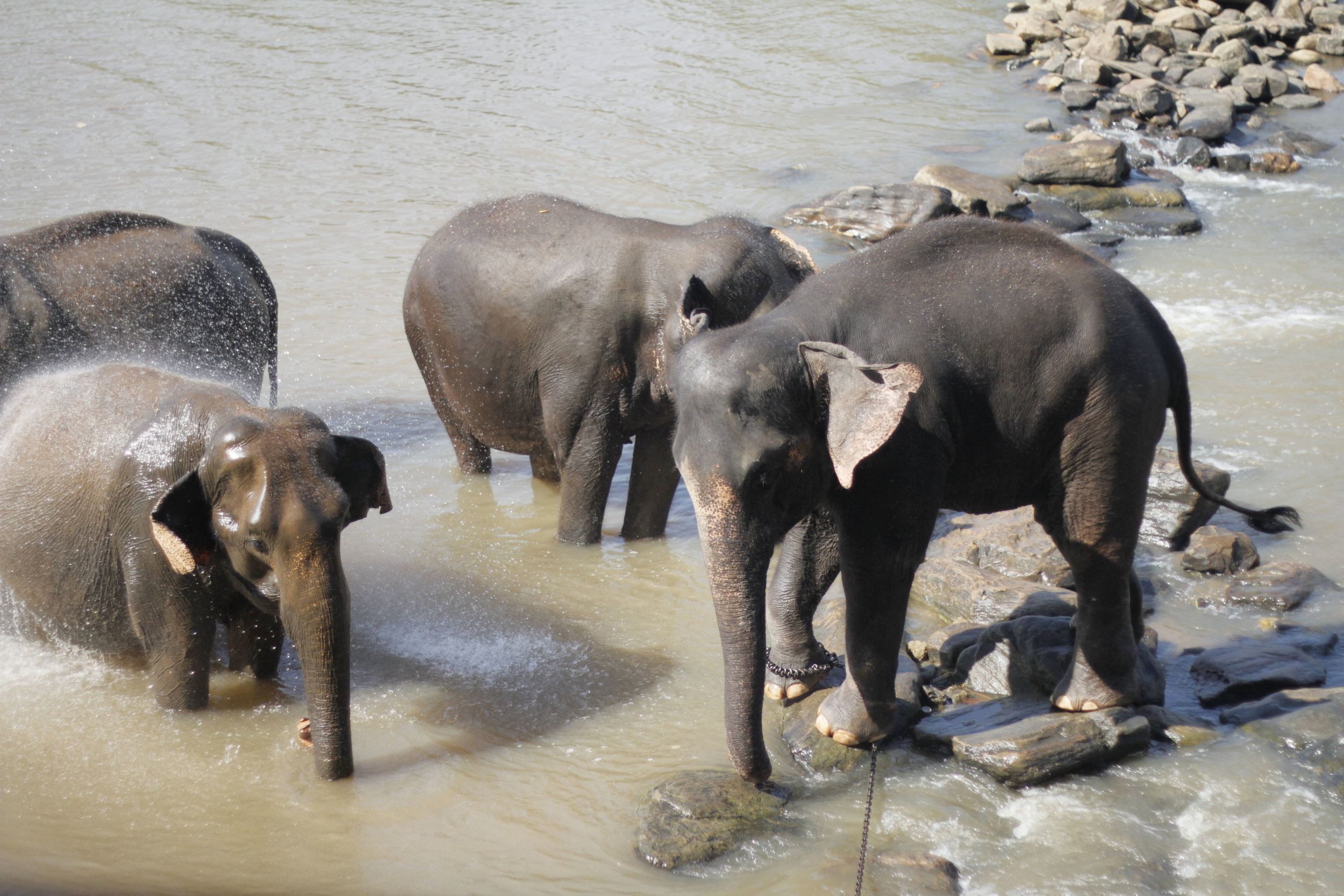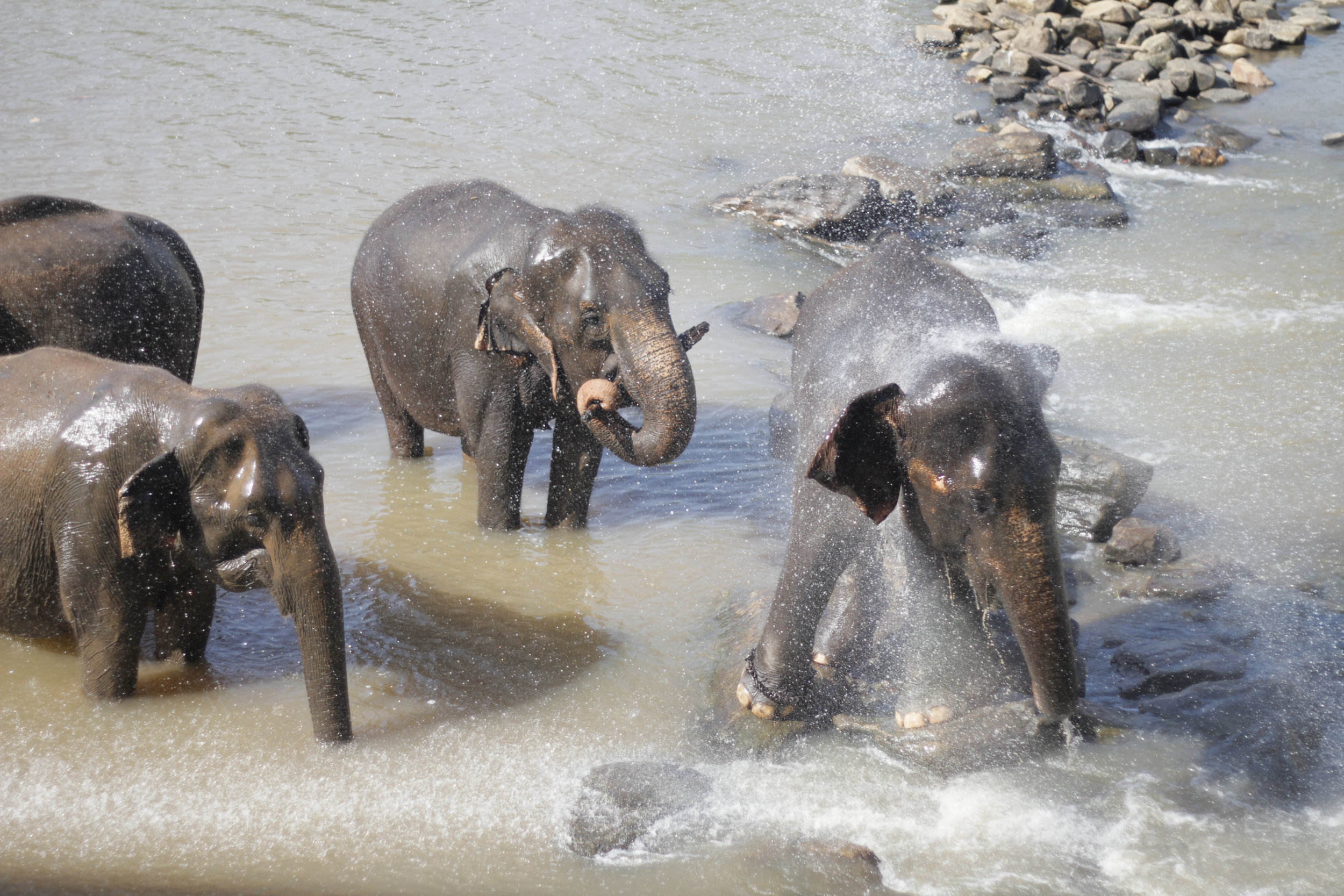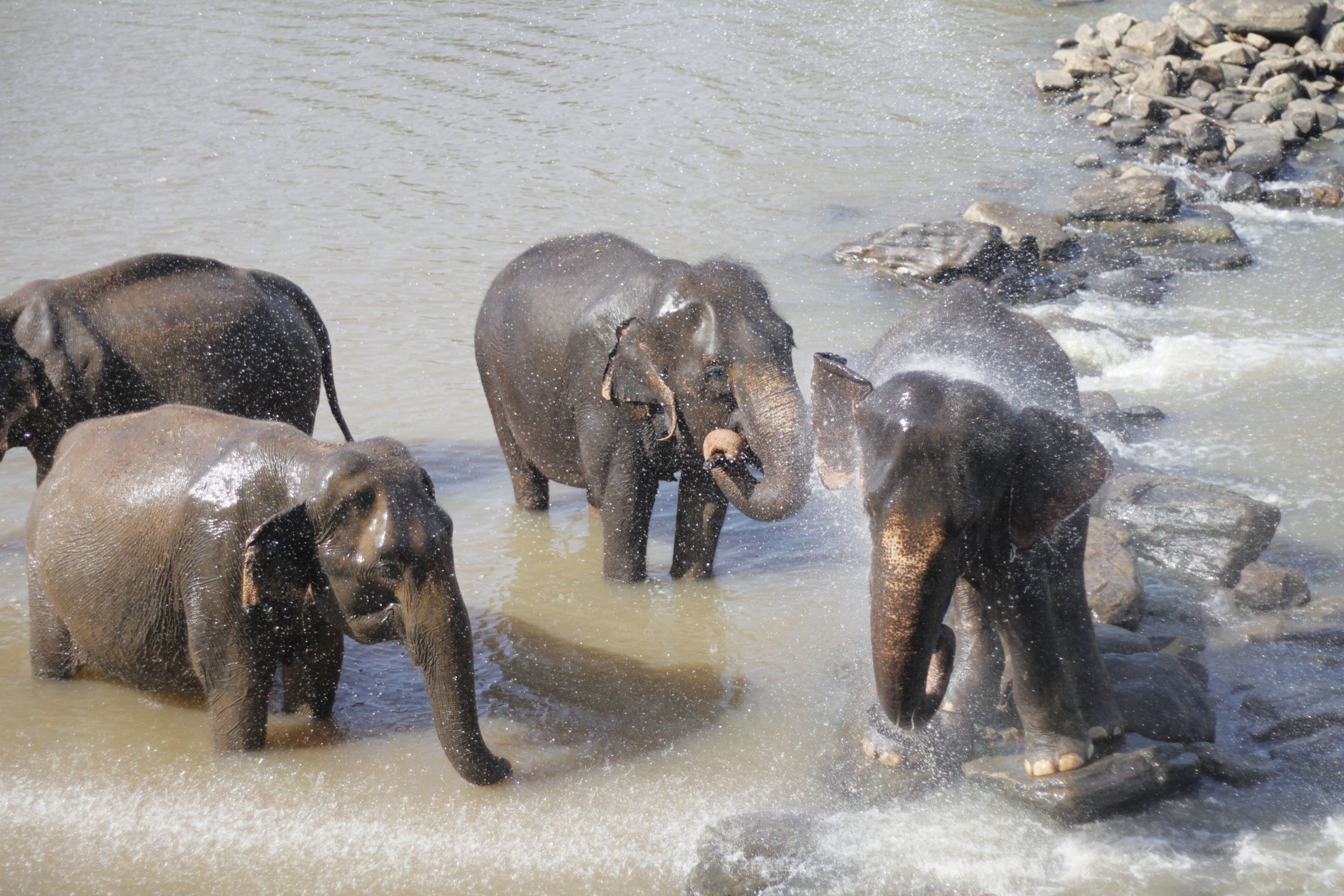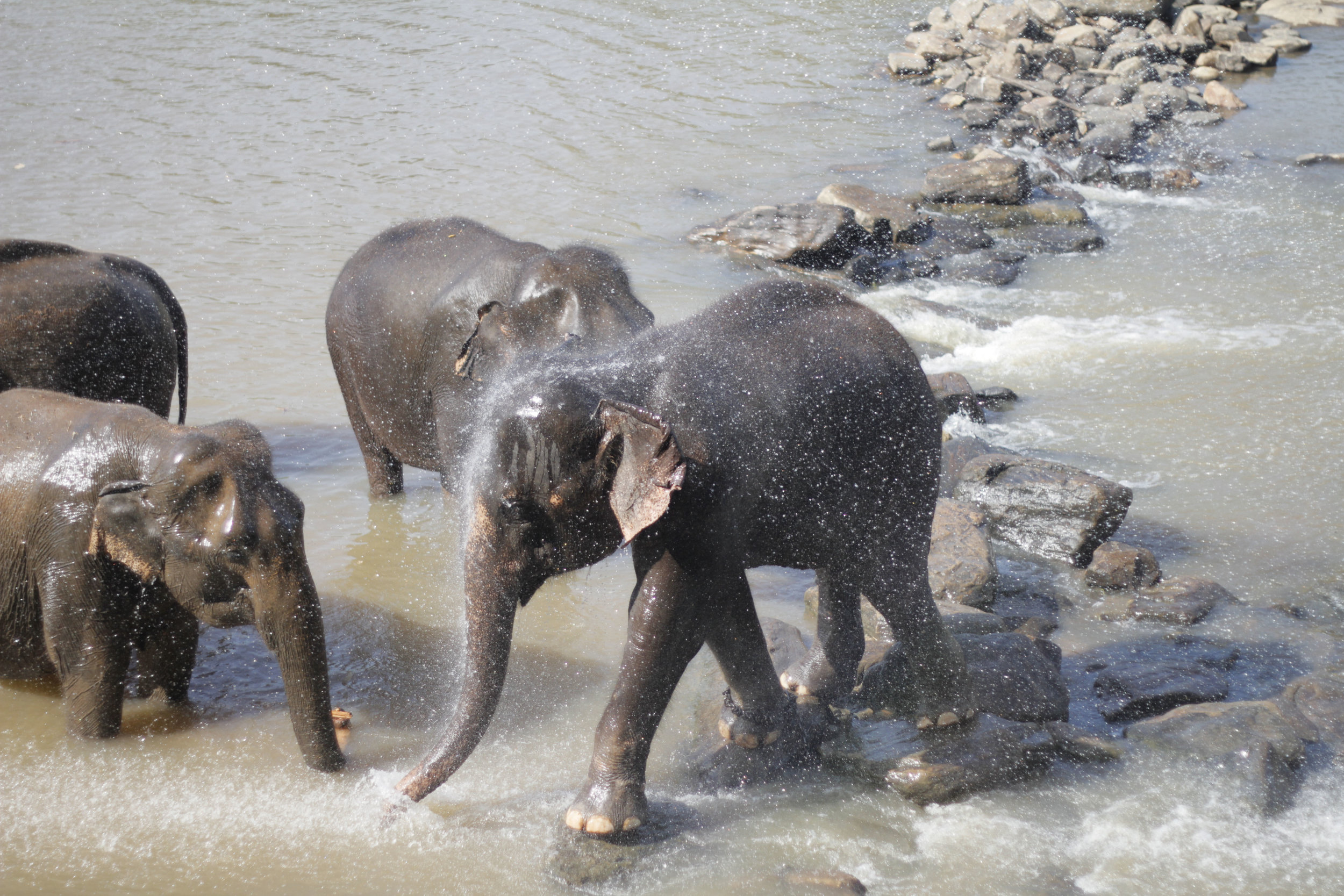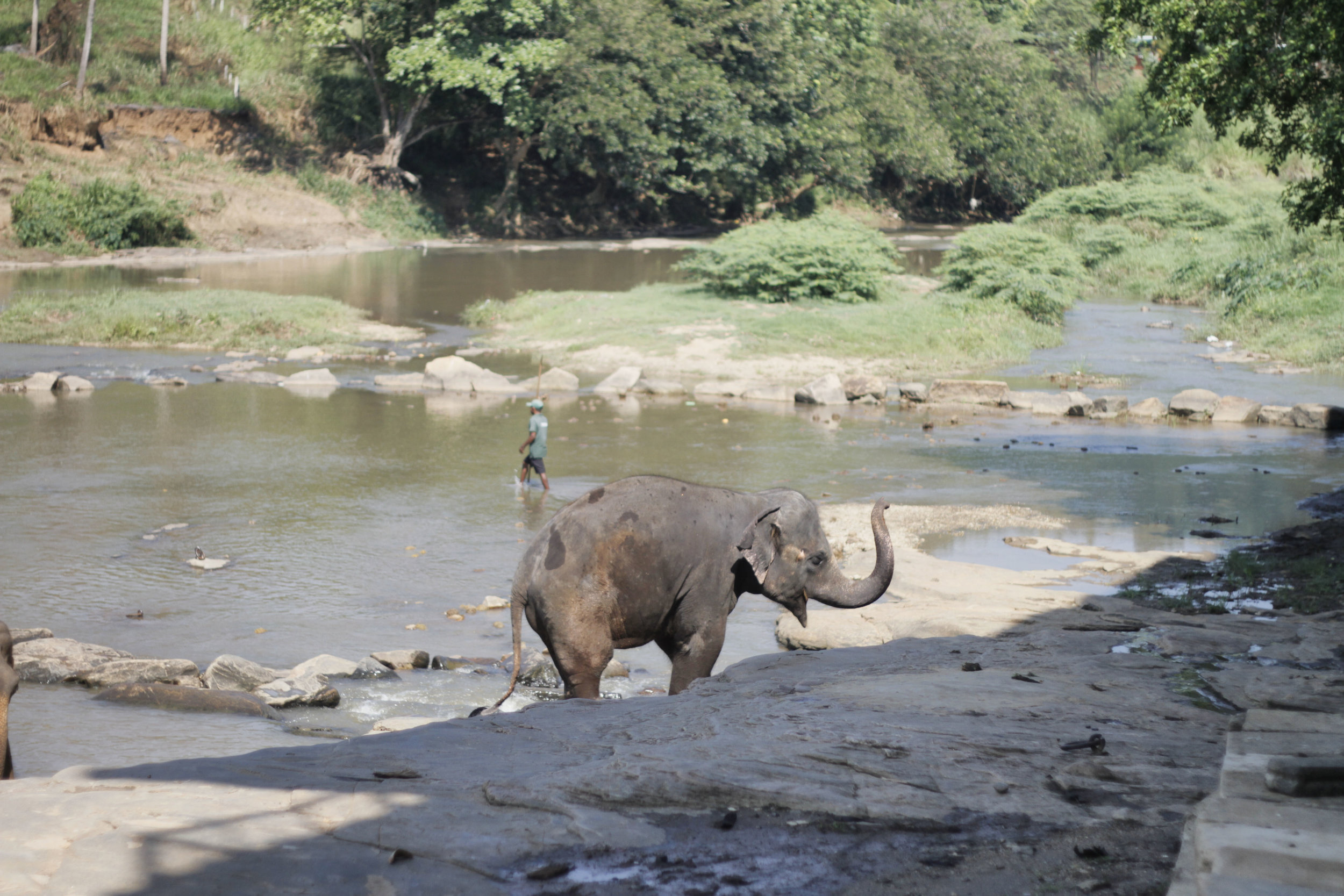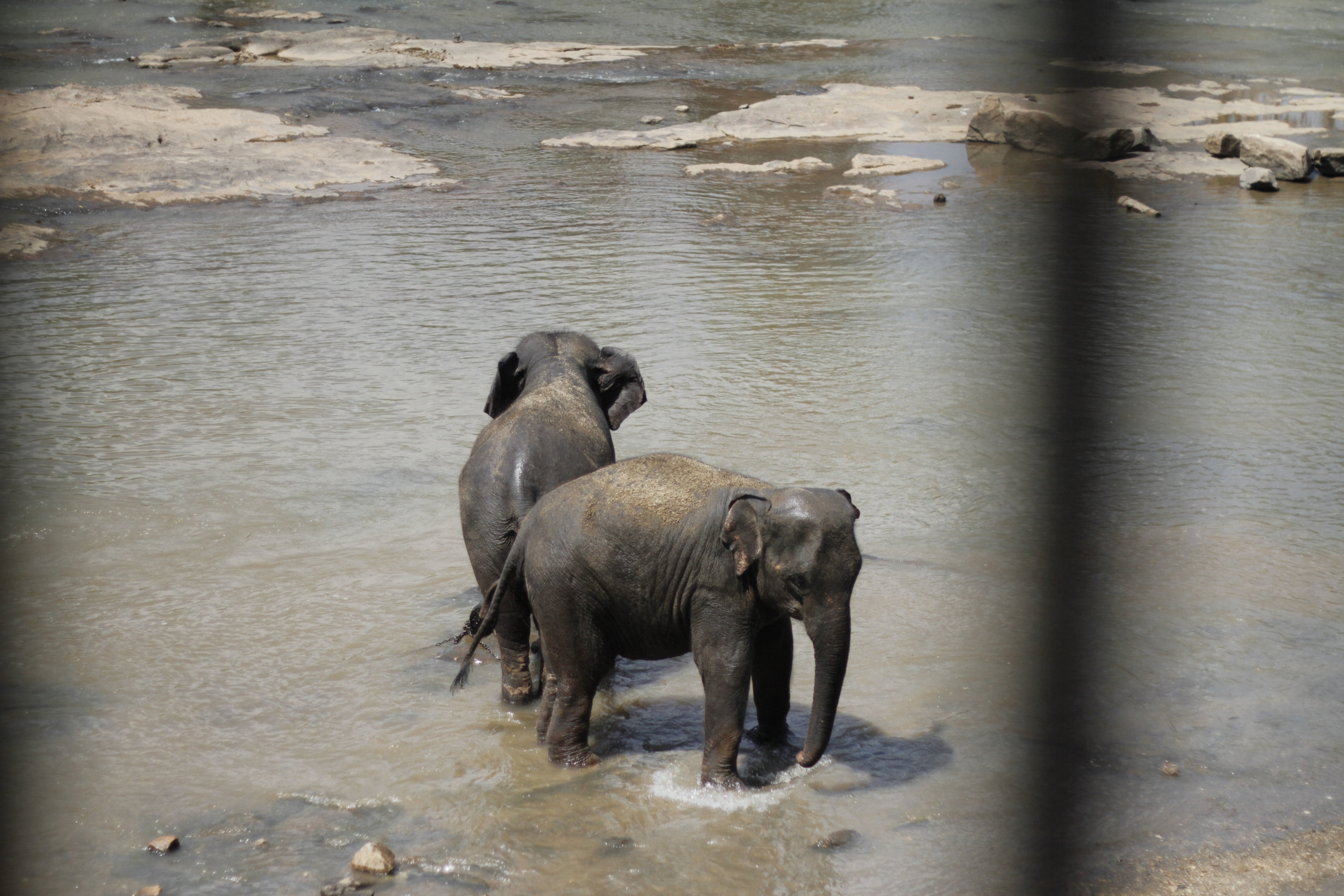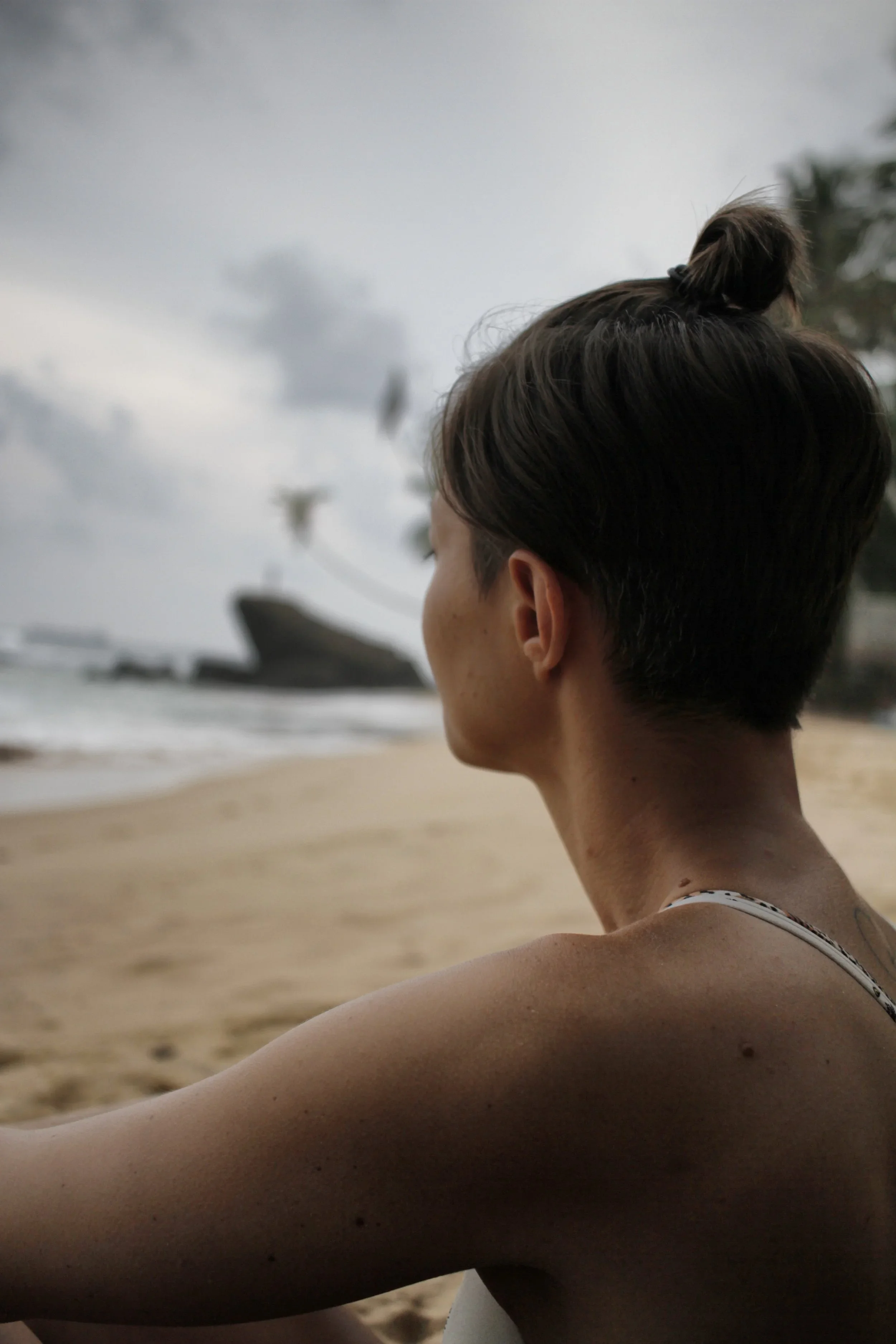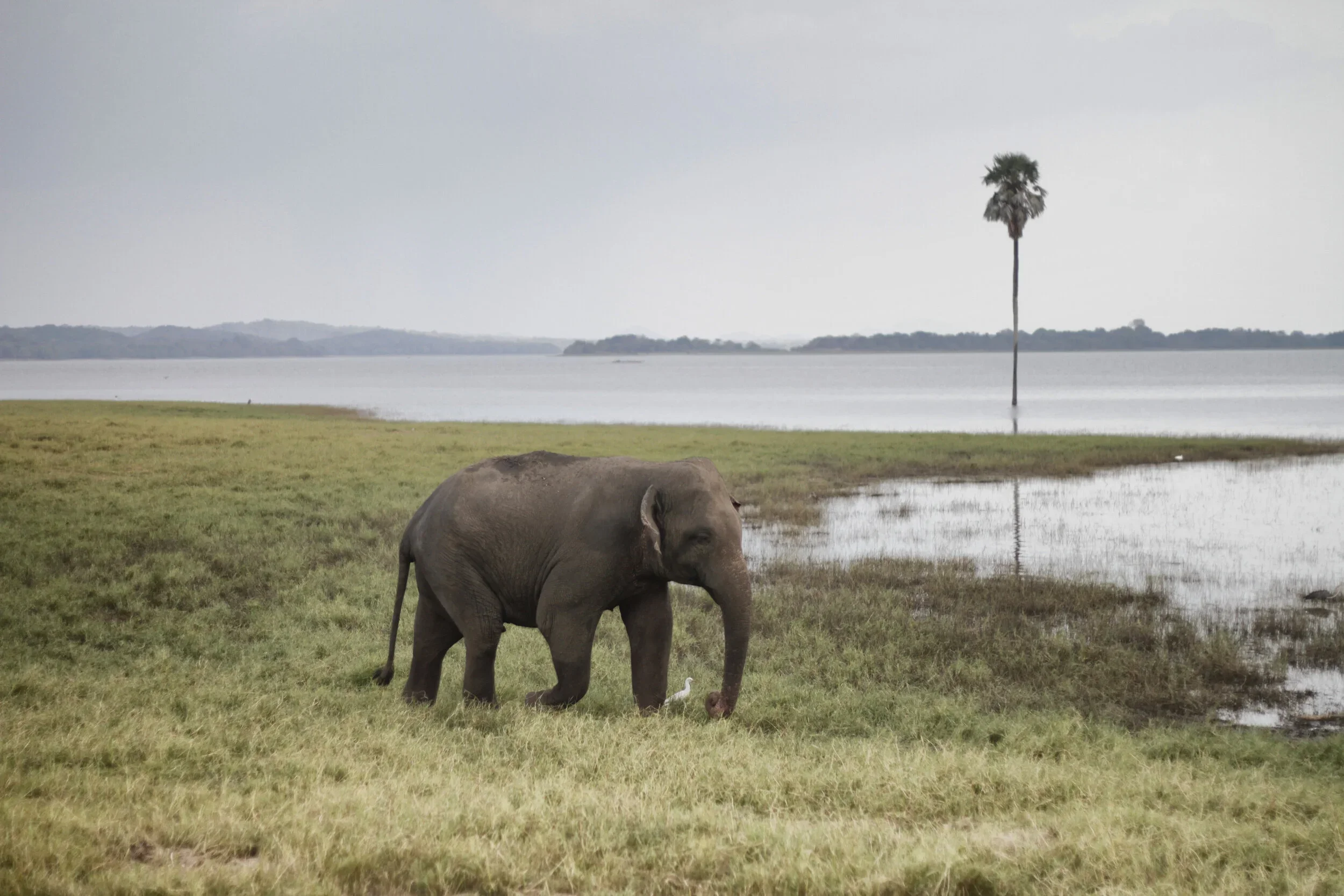Elephant Watching in Pinnawala
Best things to do in Pinnawala: get up close & personal with Asian elephants with this travel guide.
Sri Lanka is a country offering so much in the way of diversity and adventure. It’s rich in culture and history and full of gorgeous landscapes and high temperatures. This island country also boasts an extremely diverse wildlife, with sightings of wandering elephants and whales as the norm.
Food-wise, Sri Lanka is known for its production of the finest tea, cinnamon, coconut and exotic spices creating no shortage of delicious flavors.
Plus, it’s this small nations natural beauty, extraordinary biodiversity and precious gemstones that give it the nicknames “Pearl of the Indian Ocean” and “Teardrop of India,” along with its teardrop shape off the coast of India.
Pinnawala is a village that sits near the capital city of Colombo, northeast of Kegalle town in Sabaragamuwa Province. It’s known for its elephant orphanage, nursery and captive breeding ground for wild Asian elephants and famed for having the largest number of captive wild elephants.
After a grueling 30 hours of travel, the Bandaranaike International Airport in Negombo, 20 miles north of the capital city of Colombo, welcomed us with open arms. It was then that our three week journey around Sri Lanka began, starting with elephant watching in Pinnawala and then heading north, circling around the country clockwise.
Next, was Sigiriya to climb Lion Rock and explore the nearby town of Dambulla, the ancient city of Polonnaruwa and a real life elephant Jeep safari at Minneriya National Park.
Afterward, it was on to Kandy to explore giant Buddha’s, botanical gardens and fire dancing, Nuwara Eliya, also known as the “City of Light” and Ella for its lush mountains, massive waterfalls and thrilling train rides.
And finally, stops in Tissamaharama to explore Yala National Park and Mirissa for the nearby symbolic town of Galle, whale watching and beautiful beaches rounded out our holiday.
Best Things to Do in Pinnawala
Arrive / In Pinnawala
Feed / Elephants fruit by hand
Watch / Elephants sunbathe & bathe
Best Things to Do in Pinnawala
Arrive in Pinnawala
Arriving in Sri Lanka was disorienting but eased when our hotel, Hotel Pinnalanda, helped arrange a taxi from the airport for $45 USD. We’d be heading an hour and a half northeast from the airport to the village of Pinnawala. After scooping up our luggage, we found our driver holding a name card and as advised, we used the ATM at the airport to withdraw enough cash for the next few days.
Tip / The Sri Lankan rupee (LKR) is a closed currency and only available within the country. ATM’s can be scarce in Sri Lanka, so grab some cash at the airport upon arrival.
The weather was hot and sticky, especially packed into the backseat of a small taxi but we were on our way. As we arrived, Hotel Pinnalanda served a refreshing sparkling black currant water. Check in was simple and then we were led to our room overlooking the stream. Exhausted and running on fumes, we showered and passed out, never waking for lunch or dinner.
The following morning we woke early to shower and enjoy breakfast overlooking the river. Breakfast was included with our stay and served at a dining area attached to our hotel. It was very nice, complete with a gorgeous view. And we had no idea what awaited us.
Hotel Pinnalanda ended up being a wonderful experience and a great way to begin our vacation. The service was incredible from the moment we arrived until the second we left. The rooms were clean and very well kept but we did need to work out getting an adapter (something most hotels had already worked out by offering dual outlets).
Tip / Sri Lanka uses plug types D, G and M. Type D has three round pins, Type G has three flat pins and Type M is similar to D but with larger pins. To ensure compatibility, it’s best to bring a universal adapter that supports all three types, especially since the country is transitioning to Type G as the standard, so you may encounter all three. Worst case, if you need to purchase an adapter, look for convenience or hardware stores.
Feed Elephants Fruit by Hand
As we finished our meal of eggs, toast, chicken sausage, bacon and fruit, elephants began to arrive. They moved in slowly but with great force. We spent the next few hours feeding and observing the elephants, both up close and from a distance.
We quickly realized it was best to sneak down near the water to get up close and personal with the elephants. One of the local men nearby offered us fruit to feed the elephants but asked for payment in return. Either way, it was incredible to feed the elephants by hand.
One of the locals asked if we’d like to bathe the elephants (and possibly ride) for a fee but we felt it best to not support any type of exploitation of the elephants and passed on the opportunity. Later that morning, we learned more elephants would be arriving at the river to cool off. The elephants visit this area to drink and bathe twice daily from the Pinnawala Elephant Orphanage.
The Pinnawala Elephant Orphanage was established by the Sri Lankan Department of Wildlife Conservation in 1975 and was taken over by the Department of National Zoological Garden in 1978. Beginning in 1982, an elephant breeding program was launched.
Between 75 and 100 elephants are taken care of at the orphanage which was established to nurse, feed and house young elephants abandoned by their mothers. Many elephant births have occurred at the orphanage while under care and some have even been released to private owners and temples.
Watch Elephants Sunbathe & Bathe
As the herd of elephants began to arrive, everyone cleared to make way. It was pretty incredible to see so many massive elephants moving so quickly and was even a bit frightening to realize how powerful they are.
The elephants began to spread out and enjoy the water and sunny skies. Some wandered off to avoid the crowds while others eagerly begged for fresh fruits from the tourists.
As we took a closer look we noticed some elephants were secured by large chains linked to posts in the ground, while others were free to roam. There was even one elephant with all four legs chained so tightly he was barely able to shuffle by like an inmate.
It turns out that the “trouble makers” (ones who cause problems or sneak away) need to be secured for safety reasons. Of course, it’s never fun to see animals tied up but I can understand a certain level of safety is extremely important.
Watching the elephants play was fascinating. Most acted like children, taunting other elephants or splashing around in the water. Others tried to get frisky with each other, break away from their chains or snap branches in half. But most of all they seemed happy, happy to get a scrub down or sprayed in the face with cool water under the hot sun.
It’s still hard to believe how close we were able to get to the elephants as they bathed in the river. We could literally sit on our balcony and watch them playing below us. We hadn’t needed to pay an entry fee to view or scurry off with a tour, we could sit and enjoy the elephants throughout the day without any pressure.
After spending hours hanging with the elephants it was time for us to move on to Sigiriya, our next stop in Sri Lanka. Sigiriya is two and a half hours northeast of Pinnawala and home to an ancient rock fortress often referred to by locals as the eighth wonder of the world.

